Marvellous minibeasts
Literacy
This week, the children had fun writing their own versions of The Very Hungry Caterpillar. They came up with some fantastic ideas.
BI – The Very Hungry Bee
CW – The Very Hungry Ant
CW – The Very Hungry Worm
HD – The Very Hungry Spider
BA – The Very Hungry Dragonfly
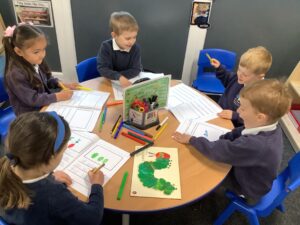
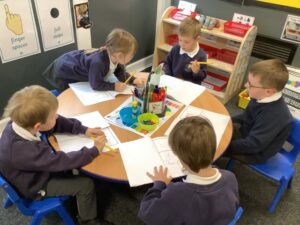
Next week, we’ll study the artist Alexander Calder and create our own representations of his butterfly work.
 BREAKING NEWS!
BREAKING NEWS!
On Monday, Mr Atkins brought us a box – it was our caterpillars! The children were so excited. When they arrived, they were amazed at how tiny they were. Throughout the next few weeks, the children will be observing them on a daily basis and writing in their caterpillar diaries. This week, we’ve been learning about the life cycle of a butterfly.
Ask your child if they can remember the four stages of the life cycle. 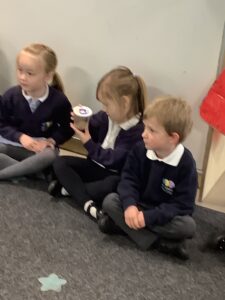
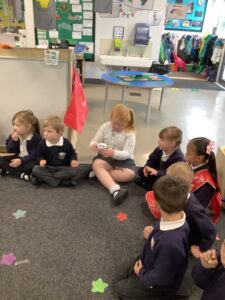
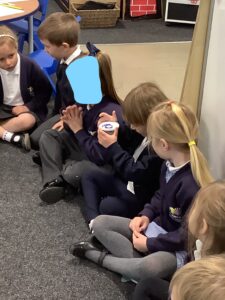
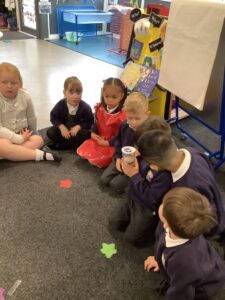
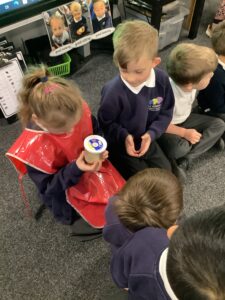
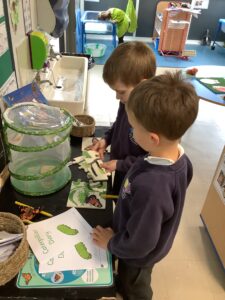
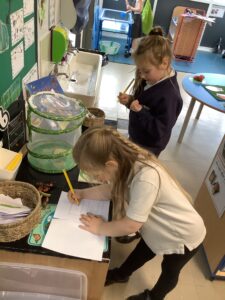 The minibeast learning continued in the areas…
The minibeast learning continued in the areas…
We went looking for minibeasts in our outdoor area. We talked about what they look like and their habitats.
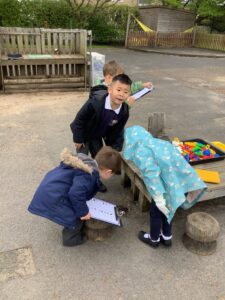
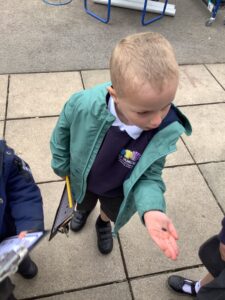
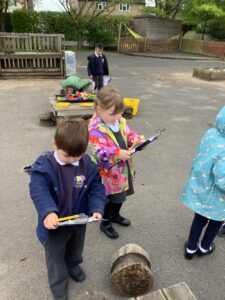 We painted symmetrical butterflies.
We painted symmetrical butterflies.
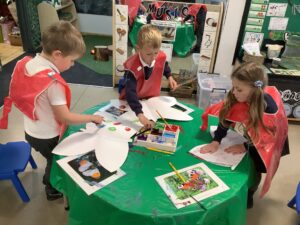
We used natural objects to create minibeasts.
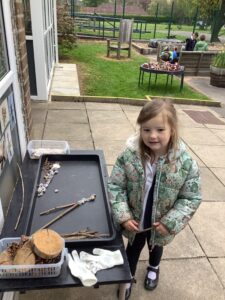
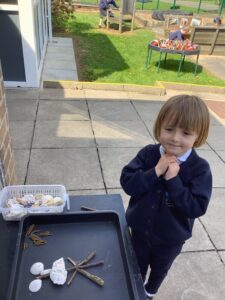
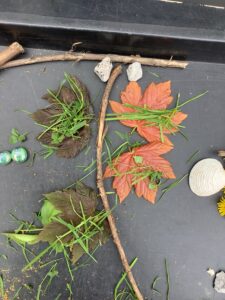
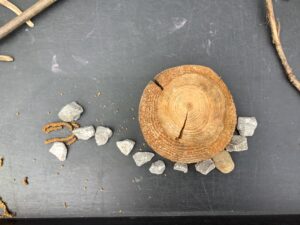 Diary dates
Diary dates
Friday 13 May – School closed: training day
Friday 27 May – Jubilee celebrations in school
Thursday 23 June – Moving from Reception to Year 1 transition meeting. This one is in person – not by Zoom (finally!).
Tuesday 05 July – Sports Day (morning)
Friday 08 July – PTA Summer Fair
Home-Link Challenge
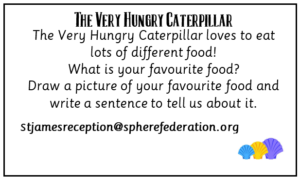
I hope you all have a happy and healthy bank holiday.
See you on Tuesday!
29 March 2022
Y1 – The /l/ sound spelt -el at the end of words.
table, apple, bottle, little, middle
Y2 – This week, the year 2 children have been focusing on homophones. It’s important to know the difference in meaning between homophones.
there/their/they’re, here/hear, night/knight, blue/blew, be/bee

29 April 2022
This week, we have been learning about unusual spelling patterns. Please learn the following words for a test on Thursday 05 May.
- amateur
- ancient
- bargain
- bruise
- conscience
- environment
- foreign
- mischievous
- prejudice
29 April 2022
The latest Talk Time relates to our current Geography topic, Explorers:
I can show off my knowledge of world geography.
Years 1 and 2:
I know the world’s seven continents and the world’s five oceans.
Years 3 and 4 (as above plus):
I know at least four European countries and their capital cities (not including those in the UK) and I know some of the main rivers and mountains in Europe.
Years 5 and 6 (as above plus):
I know some world-wide countries and some of their major cities.
Think back to your lessons as a geographer so far this year. What strategies have you used, or could you use, to help you remember these facts? It could be drawings, pictures, map, videos, songs or other resources.
Our oracy focus this half term is vocabulary so when having your discussions at home, make sure to use the correct terminology eg city, capital city, country, continent.
29 April 2022
These words all have an alternative grapheme ‘ch’ to make the ‘k’ sound.
ache
stomach
echo
anchor
character
school
technology
chemist
choir
mechanic
The children will be tested on Friday 06 May 2022.
Science – Plants
This half term we are learning about plants. We will be focussing on:
- naming a variety of common, garden and wild plants.
- identifying and naming various deciduous and evergreen trees.
- identifying and describing the basic structure of a variety of common flowering plants, including trees.
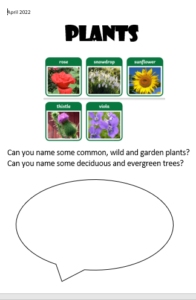
Here is a list of some of the vocabulary that will be taught in the coming weeks.
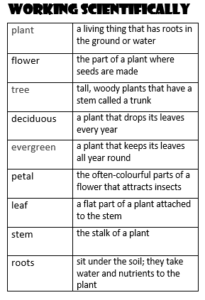
Today, we discussed the difference between a garden and wild plant and identified some plants. We also went on a plant hunt around school and used the iPads to take pictures of the plants we found. We then classified them into garden and/or wild plants.
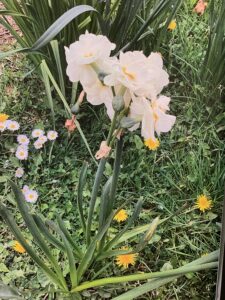

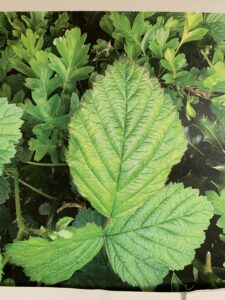


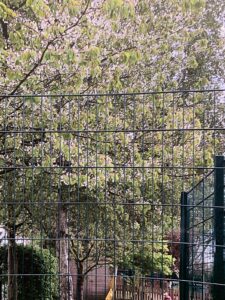
Challenge: Can your child identify any of these garden and wild plants? Can they classify them into garden and/or wild plants?
Living and Learning – I can take part in democratic decisions
This week, we have been discussing in class what it means to be part of a democratic decision.
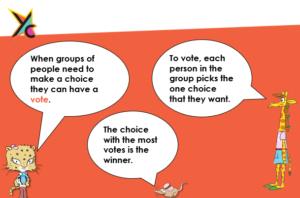
The children were given a choice of two songs to sing in collective worship. We had a vote and the song with the most votes was the song we sung. We discussed how sometimes things might not go your way but we have to be respectful to the decision.
Isla “That’s ok because next time we might get to sing the song I chose.”
Today, we had another democratic decision to make. On Friday 27th May we will be celebrating the Queen’s Platinum Jubilee-that’s 70 years as Queen! Each class will learn and perform a dance from each of her reigning decades, which we will share at the party.
The children were given a choice of two songs from the 90s (are chosen decade) and we had a vote. The song we will be performing is 5,6,7,8 by Steps.
We are gymnasts!
Year 3 have started some gymnastics with some coaches. Their first lesson was full of energy and enjoyed by all of the children.









We can take part in democractic decisions!
This week, our Living and Learning statement encourages us to learn about democracy and to take part in a democratic decision. Therefore, we took time to hold a vote in class. Read on to find out what we were voting for…
To celebrate the publication of Anna James’ fantastic new book, ‘Hetty and the Battle of the Books’, School Library Service (SLS) have partnered with publisher Barrington Stoke to launch a search for the best young reading ambassadors in Leeds.
They are looking for KS2 children who advocate reading for pleasure and encourage others to find their own love of reading with their enthusiasm for books.
Each school is invited to enter ONE pupil into the competition and the five short-listed applicants will be invited to attend an awards ceremony at Leeds Central Library on Saturday 10th July, where the winner will be announced by Anna James and receive the trophy for Leeds School Librarian 2022. The ceremony at midday will be followed by a FREE event for families with the author who will be introducing their latest book.
So our vote today resulted in Scarlet being selected to be the reading champion in our class. Next, the JLT will choose the reading champion in Key Stage 2 to be put into the draw.
Good luck!
Living and Learning: I can take part in democratic decisions.
The queen is in charge.Boris Johnson makes all the important decisions.The police make decisions.
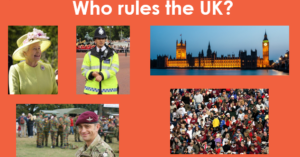
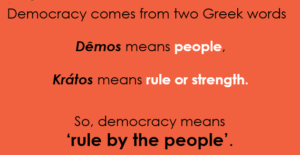
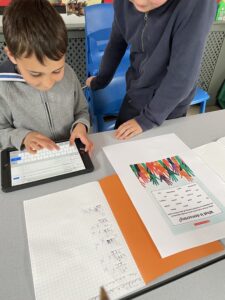
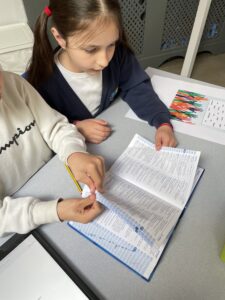
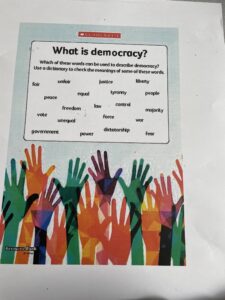
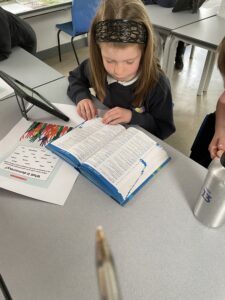
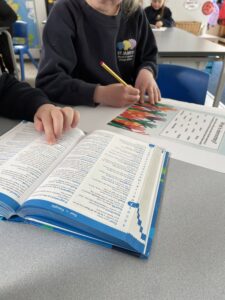
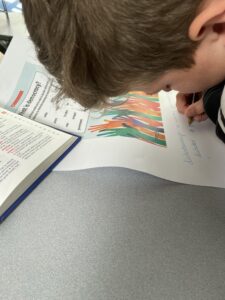
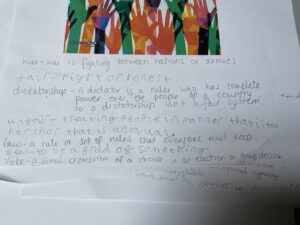
- fairness
- justice
- liberty
- freedom
- majority
- law
- government